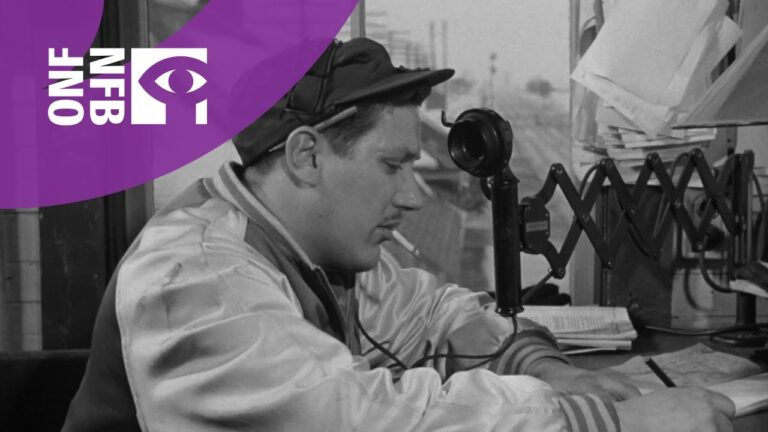Discover the Exciting World of Athletic Training: Job Description and Salary

Athletic Trainer Job Description Template
Athletic Trainer Job Description An athletic trainer is a healthcare professional who specializes in the prevention, assessment, treatment, and rehabilitation of injuries and illnesses related to physical activity. They work with athletes and active individuals to promote overall health and fitness while ensuring their safety during physical activities. The primary responsibilities of an athletic trainer include evaluating and diagnosing injuries, implementing treatment plans, and providing immediate care to athletes on the field or in the training room. They also collaborate with other healthcare professionals, such as physicians and physical therapists, to develop comprehensive care plans for athletes. Effective communication is a crucial skill for athletic trainers as they need to effectively communicate with athletes, coaches, and other healthcare professionals. They must be able to explain treatment plans, injury prevention strategies, and rehabilitation exercises clearly and concisely. Another important skill for athletic trainers is adaptability. They often work in fast-paced environments, such as sports events or practices, where they need to quickly assess and respond to injuries. They must be able to adapt their treatment plans and techniques based on the specific needs of each athlete and the demands of the sport. In addition to injury prevention and treatment, athletic trainers also play a role in educating athletes on proper nutrition, hydration, and fitness techniques. They may also be responsible for maintaining medical records, managing equipment and supplies, and ensuring compliance with safety protocols. Overall, athletic trainers are essential in the sports and healthcare industry as they help athletes perform at their best while minimizing the risk of injuries. They are dedicated professionals who are passionate about promoting the overall well-being and success of athletes.Athletic Trainer Responsibilities
Athletic Trainer Requirements
- A bachelor’s degree in athletic training or a related field
- Completion of a Commission on Accreditation of Athletic Training Education (CAATE) accredited athletic training program
- Passing the Board of Certification (BOC) exam to become a certified athletic trainer
- Obtaining state licensure or certification, which may include additional exams or requirements
- Continuing education to maintain certification and stay up-to-date with advancements in the field
- Strong knowledge of anatomy, physiology, and biomechanics
- Ability to assess and evaluate injuries and create appropriate treatment plans
- Proficiency in various therapeutic techniques, such as taping, stretching, and therapeutic exercises
- Effective communication and interpersonal skills to work with athletes, coaches, and other healthcare professionals
- Knowledge of emergency procedures and ability to provide immediate first aid and care
- Understanding of injury prevention strategies and ability to develop and implement prevention programs
- Ability to collaborate with other healthcare professionals, such as physicians and physical therapists, to provide comprehensive care
- Knowledge of legal and ethical considerations in athletic training
- Physical stamina and the ability to work long hours, including evenings, weekends, and holidays
- Strong problem-solving and decision-making skills
How Much Does A Athletic Trainer Make?
Athletic Trainer Salary
| Experience Level | Annual Salary |
|---|---|
| Entry Level | $39,820 |
| 1-4 years | $44,280 |
| 5-9 years | $49,230 |
| 10-19 years | $54,630 |
| 20+ years | $59,870 |
An athletic trainer’s salary varies based on their experience level. Entry-level athletic trainers earn an average annual salary of $39,820. As they gain more experience, their salary increases. Those with 1-4 years of experience earn around $44,280 per year, while those with 5-9 years earn approximately $49,230. Athletic trainers with 10-19 years of experience can expect to earn about $54,630 annually, while those with 20 or more years of experience earn an average salary of $59,870 per year.
Athletic Trainer Salaries by Country
Top Paying Countries for Athletic Trainer
| Country | Average Salary |
|---|---|
| United States | $46,630 |
| Switzerland | $68,380 |
| Australia | $61,200 |
| United Kingdom | $40,200 |
| Canada | $42,960 |
Athletic trainers are highly valued in various countries around the world. The top paying countries for athletic trainers include the United States, Switzerland, Australia, the United Kingdom, and Canada. In the United States, athletic trainers earn an average salary of $46,630. Switzerland offers the highest average salary for athletic trainers at $68,380, while Australia follows closely behind with an average salary of $61,200. The United Kingdom and Canada also provide competitive salaries for athletic trainers, with average earnings of $40,200 and $42,960 respectively. These countries recognize the importance of athletic trainers in promoting the health and well-being of athletes, resulting in attractive compensation packages for professionals in this field.
A video on the topic Athletic Trainer
Video Source : Ochsner HealthInterview Questions for Athletic Trainer
1. What is the role of an athletic trainer?
An athletic trainer is responsible for preventing, diagnosing, and treating sports-related injuries. They work with athletes to provide immediate care, develop rehabilitation plans, and educate them about injury prevention.
2. What qualifications are required to become an athletic trainer?
To become an athletic trainer, one must have a bachelor’s degree in athletic training from an accredited program. Additionally, they must pass the Board of Certification (BOC) exam to become a certified athletic trainer (ATC).
3. How do athletic trainers assess and diagnose injuries?
Athletic trainers assess injuries by evaluating an athlete’s symptoms, conducting physical examinations, and using diagnostic tools such as X-rays or MRI scans. They also consult with other healthcare professionals to ensure accurate diagnoses.
4. What are some common treatments provided by athletic trainers?
Athletic trainers provide various treatments for injuries, including but not limited to taping, bracing, therapeutic exercises, massage, and electrical stimulation. They may also refer athletes to other healthcare professionals for specialized treatments.
5. How do athletic trainers help with injury prevention?
Athletic trainers help prevent injuries by educating athletes about proper warm-up exercises, stretching techniques, and using protective equipment. They also assess and correct biomechanical issues that may increase the risk of injuries.
6. What is the role of an athletic trainer during games or events?
During games or events, athletic trainers are responsible for providing immediate medical care to injured athletes. They assess the severity of injuries, make decisions regarding an athlete’s ability to continue playing, and provide first aid and emergency care when necessary.
7. How do athletic trainers collaborate with other healthcare professionals?
Athletic trainers collaborate with physicians, physical therapists, and other healthcare professionals to develop comprehensive treatment plans for injured athletes. They communicate regularly, share medical records, and discuss progress to ensure the best possible care.
8. What is the importance of continuing education for athletic trainers?
Continuing education is crucial for athletic trainers to stay updated with the latest research, advancements in treatment techniques, and changes in the field. It allows them to provide the best care and maintain their certification.
9. How do athletic trainers handle psychological aspects of injuries?
Athletic trainers often work closely with athletes during their recovery process, providing emotional support and helping them cope with the psychological impacts of injuries. They may refer athletes to sports psychologists if necessary.
10. What qualities and skills are important for an athletic trainer?
Important qualities and skills for an athletic trainer include strong communication and interpersonal skills, empathy, physical stamina, problem-solving abilities, and a solid understanding of anatomy, physiology, and sports medicine principles.






